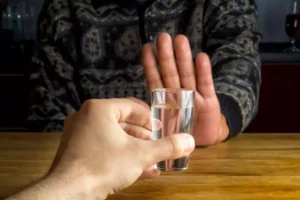
Your BAC definitely plays a role in drunkenness, but isn’t the only factor in how drunk you feel. It typically reaches your brain within 5 minutes, and you can begin feeling the effects within 10 minutes. Alcohol lowers your inhibitions, which is why you might do things while drunk that you wouldn’t do sober. You might say things you wouldn’t normally say, take risks, or behave in ways that surprise you later.
- As a result, they may experience a lower level of intoxication compared to individuals with slower metabolism.
- Since there are so many levels to being under the influence of alcohol, it’s important to prepare before you head out.
- However, their coordination and judgment are generally unaffected.
- Your best bet is to ride out your buzz while your body does its thing.
- Alcohol abuse and binge drinking are common, and they put many people at risk of alcohol poisoning, alcohol addiction, and chronic alcohol-related health problems.
- Usually a man will start to feel tipsy after consuming 2 to 3 alcoholic drinks in an hour.
- However, the social context can also contribute to risky behaviors, such as binge drinking or drinking and driving.
Impaired Judgment and Decision-Making
An alcohol overdose, also known as alcohol poisoning, can be fatal or lead to irreversible brain damage. The duration of intoxication depends on how much alcohol an individual consumes. Typically, it can take at least several hours for their BAC to reduce enough for it to be safe to drive. Alcohol can interfere with protective measures such as a person’s gag reflex. A high BAC can increase the risk of asphyxiation if a person vomits and does not have enough intact reflexes to clear their own airway. Ideally, a person should not drive after consuming alcohol until it is completely out of their system.
Understanding the Levels of Being Drunk

It is important to note that alcohol affects individuals differently, and the experience of being drunk can vary from person to person. The effects of alcohol on the body and mind can be influenced by factors such as body weight, metabolism, tolerance, and the type and amount of alcohol consumed. When a person consumes alcohol, the full effects may take some time to become apparent. Several factors can influence the levels of intoxication one experiences after consuming alcohol. Understanding these factors is important in recognizing and managing one’s alcohol consumption responsibly. The key factors that influence intoxication levels include alcohol tolerance, body weight and metabolism, and the rate of alcohol consumption.

Loss of Coordination

If uncertain about whether a person’s alcohol consumption is an emergency, err on the side of caution. Some people may be at risk of alcohol overdose after just a few drinks, especially if they are young, small, or do not often drink. It is impossible to judge how drunk a person will be or feel based on alcohol consumption alone. For most people, a single drink — for example, 1.5 ounces (oz) of hard liquor, 12 oz of beer, or 5 oz of wine — will elevate blood alcohol by 0.06 or 0.07 per drink. The amount of alcohol a person drinks is the biggest predictor of BAC. Alcohol is mainly a depressant, but it actually has stimulating effects when you first start drinking.

Myths about sobering up fast
Being tipsy refers to the early stages of intoxication, where you feel relaxed, social, and slightly impaired. Being drunk means the effects of alcohol are much stronger, and you may have impaired motor skills, judgment, and coordination. Alcohol consumption is a common social activity, but the experience of being drunk can vary widely among individuals. This article delves into the physical sensations of being drunk, including common symptoms like dizziness, nausea, and impaired coordination. We will also explore how alcohol affects motor skills and balance, and the role it plays in causing dehydration and its physical effects.
- To avoid getting too drunk, stick with drinks with low alcohol content, such as light beer.
- You might go from feeling euphoric to angry, sad, or anxious in a short period.
- Blackouts are a sign of severe intoxication and indicate that you’ve consumed too much alcohol.
Stage 1: Sobriety, or Subclinical Intoxication
You could be pulled over and charged with drunk driving or, worse, get into a serious car accident, harming yourself or others. Try having a glass of water, soda, or juice in between alcoholic drinks. Spacing out your drinks allows your liver time to break down the alcohol.
If a person’s consumption exceeds their rate of alcohol metabolism, intoxication results. As intoxication progresses, confusion and disorientation may become more apparent. Alcohol affects the brain’s ability to process information efficiently, leading to difficulties in how does feeling drunk feel concentration, memory recall, and problem-solving. As a result, individuals may struggle to maintain a coherent train of thought or comprehend their surroundings.
